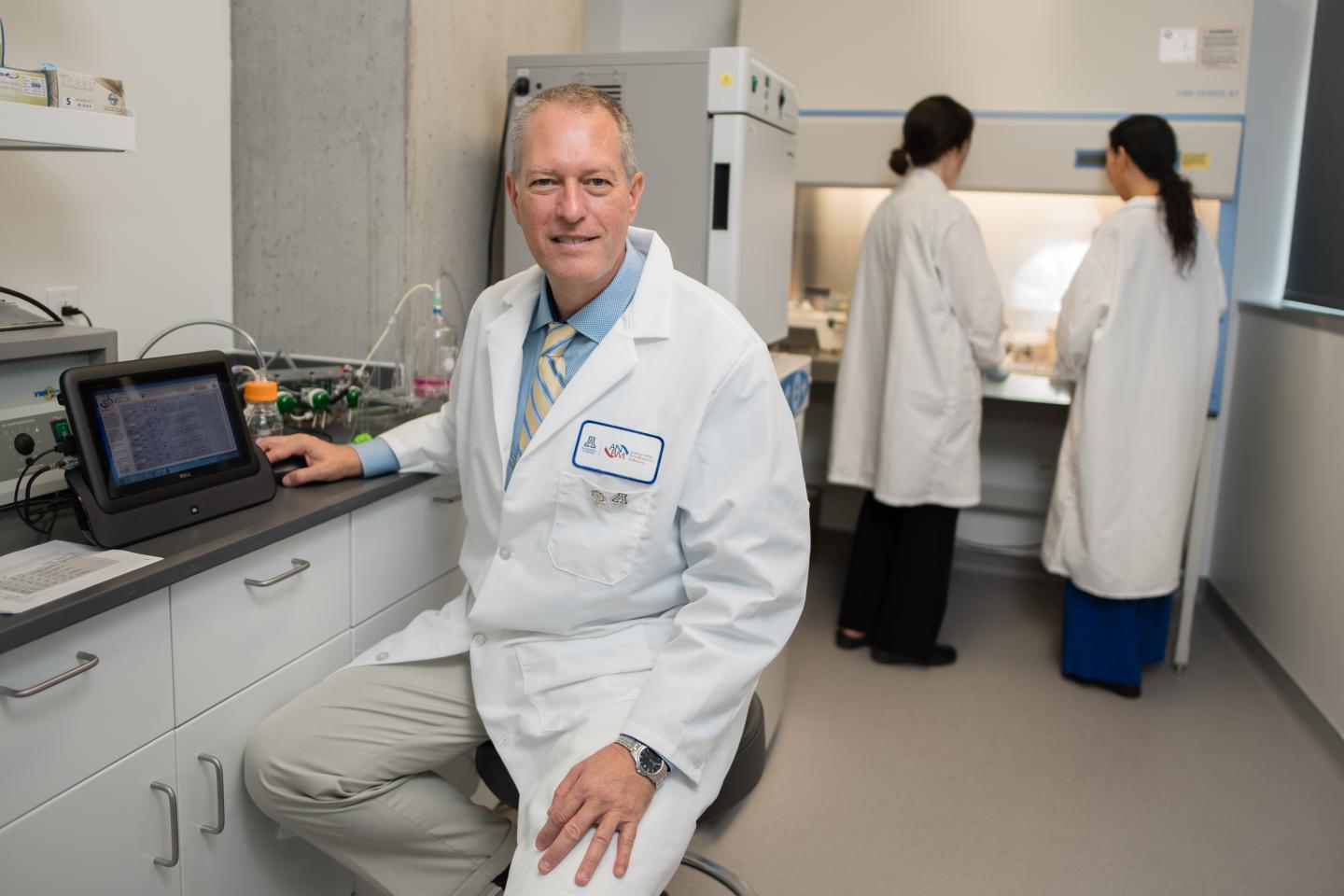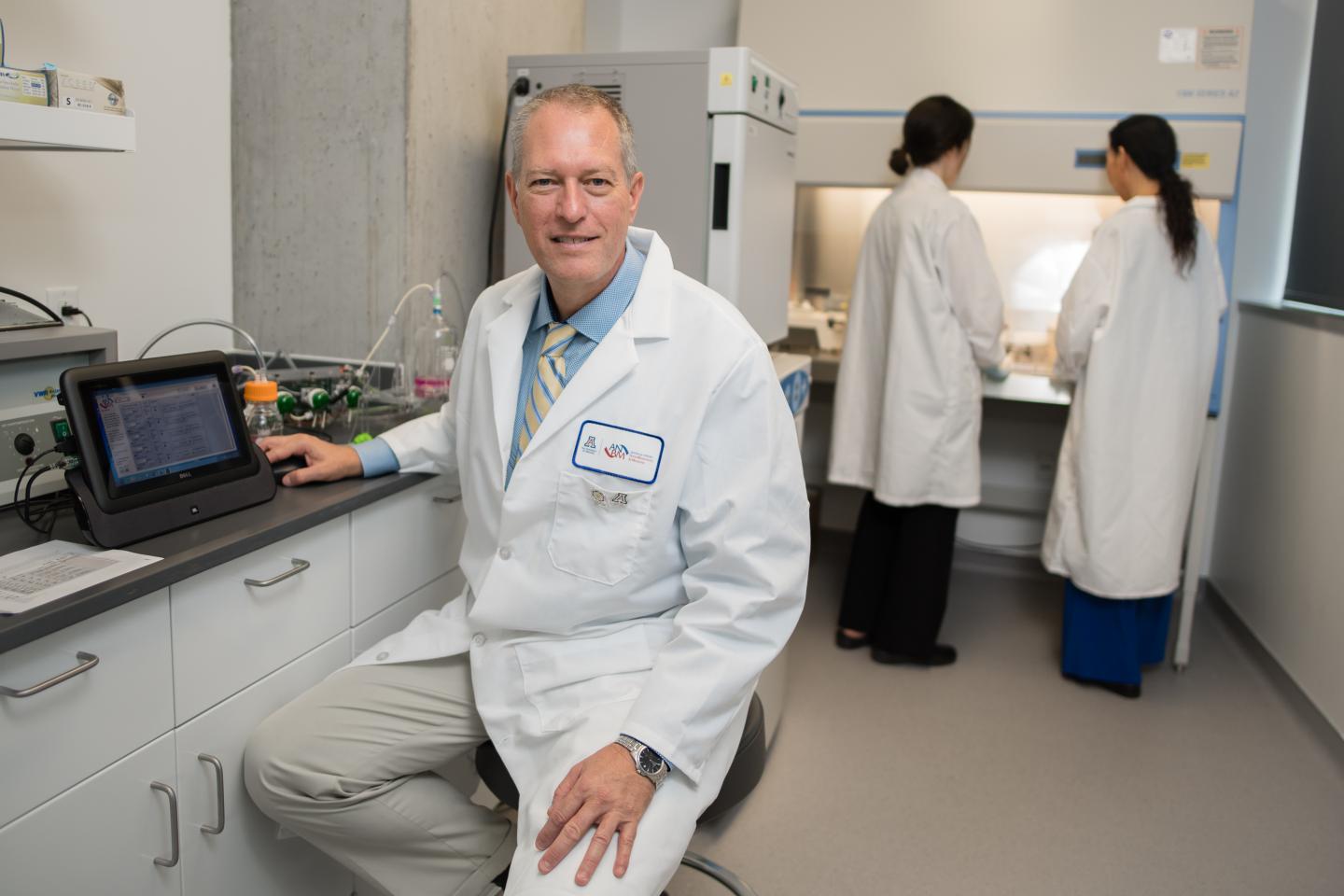
Credit: UA College of Medicine – Phoenix
The Center for Applied NanoBioscience and Medicine is doing its part to protect the health of astronauts on long-duration missions, including NASA's Journey to Mars.
The center, located at the University of Arizona College of Medicine – Phoenix, is a co-principal investigator on a grant awarded to the Wake Forest Institute for Regenerative Medicine. The grant will fund research on the effects of simulated space radiation on the human gastrointestinal tract.
Frederic Zenhausern, director of the Center for Applied NanoBioscience and Medicine and a professor at the College of Medicine – Phoenix, said UA scientists will provide microfluidic gut microsystem and biodosimetry tools to Wake Forest University scientists. The lab's share of the grant is $943,000 over four years.
The innovative Human-Microbial Cross-Talk human "gut-on-a-chip" provides a platform for scientists to monitor how solar events and cosmic rays affect humans in space. The grant is one of 10 awarded by NASA's Translational Research Institute at Baylor College of Medicine for research projects in lymphatic flow, radiation damage resistance, minimally invasive surgical techniques and the effects of the microbiome on health during long spaceflights.
"This is the first TRI initiative from NASA's Human Research Program that will help to solve some of the challenges of health management for astronauts on extended space exploration missions," Zenhausern said. "It represents an exciting opportunity to be part of an outstanding group of experts at Wake Forest, NASA and the Lawrence Livermore National Laboratory."
"The University of Arizona has a longstanding and renowned history of research partnership with NASA, particularly through the Department of Astronomy and Lunar and Planetary Laboratory," said UA President Robert C. Robbins. "We are so excited to add the UA Health Sciences to this tradition of collaboration with the space agency."
The human gut-on-a-chip provides a platform for studying a biological model of the human gastrointestinal tract that mimics the actual conditions and processes that occur within the gut. It allows scientists to see how cells from individuals respond to certain drugs or environmental exposure, allowing them to formulate personalized therapies.
With organ-on-a-chip technology, researchers can analyze the complex interactions between human cells and the microbial ecosystems of the gut, predicting their effects on health, disease onset or even cognitive performance, and study the action of probiotics, nutritional compounds or drugs.
In 2016, NASA established the Translational Research Institute to research and develop innovative approaches to reduce risks to humans on long-duration exploration missions. The institute was awarded $246 million for six years, and is led by Baylor College of Medicine with partners including the Massachusetts Institute of Technology and the California Institute of Technology.
###
About the University of Arizona College of Medicine – Phoenix
The University of Arizona College of Medicine – Phoenix admitted its inaugural class of first-year medical students in August 2007 and is celebrating its 10th anniversary this year. The college inspires and trains exemplary physicians, scientists and leaders to optimize health and health care in Arizona and beyond. The college is uniquely positioned to accelerate the biomedical and economic engines in Phoenix and the state by leveraging vital relationships with key clinical and community partners. For more, visit phoenixmed.arizona.edu/tenyears.
Media Contact
Marian Frank
[email protected]
602-827-2022
http://uahs.arizona.edu/
Original Source
http://opa.uahs.arizona.edu/newsroom/news/2017/university-arizona-scientists-awarded-space-research-grant





